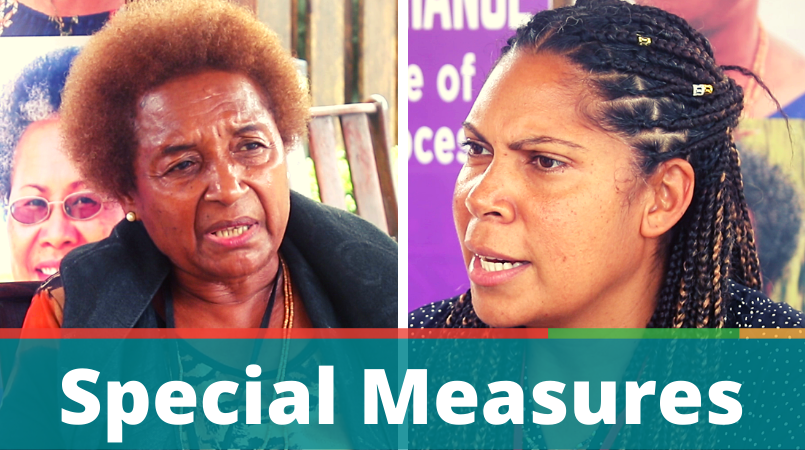
Women leaders from the Momase Region met on the 13th to 15th of July in Lae to discuss the challenges and priorities related to women’s political participation and leadership.
The question that took centre stage was: Should Temporary Special Measures be considered to pave the way for fair representation in PNG’s political landscape?
Simply put, should reserved seats be introduced in Parliament?
During the 2017 national general elections, no woman was elected to Parliament, while in 2012, only three were elected.
Generally, Since Independence, only seven women have ever been elected to Parliament.
The subject of reserved seats has brought about heated public debate, with one group saying, women should be elected based on merits while another counters that, the political space is deeply-rooted with biased gender norms and social discrimination.
Apart from threats of violence to women, their qualifications are often ignored or under-estimated, with their life choices coming under attack compared to their male counterparts.
The regional women’s advocacy workshop, facilitated by UN Women and the Department of Community Development, Youth and Religion, provided an avenue for the Momase women to get together and share their ideas and experiences.
Among the participants was the president of the West Sepik Council of Women, Dorothy Tekwie, who had contested three times in the elections.
The first time was in 1987, where she was encouraged by the late Grand Chief, Sir Michael Somare, to run for the regional seat.
None of the eighteen female candidates were elected during that time, resulting in the formation of PNG’s first-ever all-male parliament.
“Papua New Guinea is the home of the Bird of Paradise. And the Bird of Paradise is actually flying with one wing and that’s why it’s falling,” she stated.
“This country is not moving forward. Part of it is that there are no women in Parliament and I believe it is very important that the processes – whether through political parties or through the registrar of political parties office, whether through women’s movement or legislative reforms – are necessary to facilitate to ensure that women do get into 2022 (parliament).”
Jennifer Baing-Waiko, from Morobe’s Markham district, has a degree in applied science and fisheries and is the executive director of Save PNG, an organisation she created to protect resources, culture, the environment and Melanesian health.
Baing-Waiko contested the 2012 Markham Open seat. She said although the 22 reserved seats will ensure a fairer representation, the model will also be unfair on other candidates who struggled to get in using their own resources.
“And it will depend on how those women will be placed into that position; will it be, the people vote them in? If the people vote them in and they have to go through a similar process, that could make it fairer. But then, still it’s not really balanced.
“Definitely we need women in there and these sort of special measures have worked in countries like Rwanda.”
The health advocate outlined that in 2013, a record-breaking 64 percent of seats in the Rwandan Parliament went to women, making the east-central African nation the “top country for women in politics”.
This incredible progress came about when special measures were put in place, starting with a change in the 2003 Constitution that set a 30 percent quota for women in elected positions.
“And that made a really big change and now you can see that Rwanda is the Singapore of Africa,” stated Baing-Waiko.
“Papua New Guinea, we can be the same. We have to work in partnership. Men have gifts that women don’t, and women have gifts that men don’t have. And God made Adam and Eve; he didn’t just make Adam.
“We have to change that ‘hausman’ mindset.”
(Left: President of the West Sepik Council of Women, Dorothy Tekwie, and Save PNG executive director, Jennifer Baing-Waiko)
